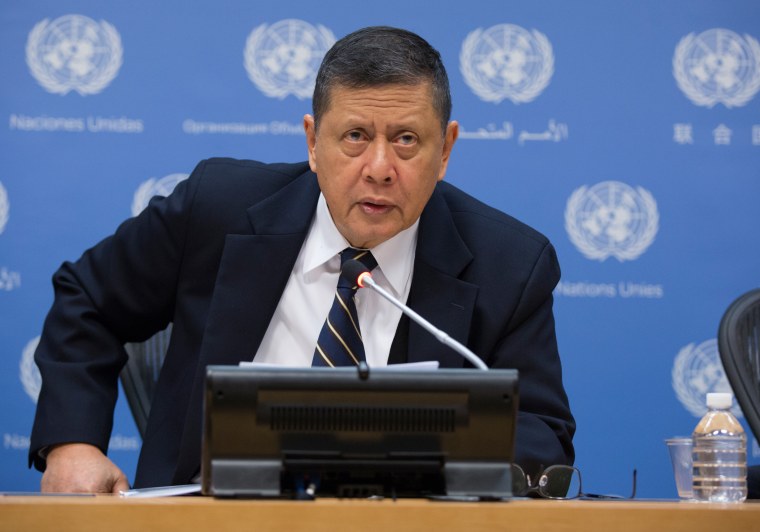North Korea is raking in billions of dollars every year after sending tens of thousands of people abroad to work in conditions of forced labor, according to a United Nations report.
The reclusive, totalitarian state has sent an estimated 50,000 people to work in foreign countries, mostly in the mining, logging, textiles and construction industries of China and Russia, the report said.
The details emerged in a report by Marzuki Darusman, U.N. special rapporteur for human rights in North Korea, that was presented to the U.N. General Assembly in New York on Wednesday.

According to the report, employers in these foreign countries pay North Koreans an average of $120 to $150 per month, while giving far larger sums to the North Korean government that sent them there.
The workers are forced to work up to 20 hours per day with one or two days of rest per month, and if they miss monthly quotas they do not get paid at all, the report said.
They are not given enough food, safety measures are inadequate and accidents are not reported to local authorities, it added. The report also alleged that workers are placed under constant surveillance by North Korean security agents and that the host countries do not monitor the conditions faced by them.
Their jobs are assigned according to their social class — "songbun" in Korean — with poorer workers given the most dangerous and tedious tasks.
This allows North Korea to circumvent international sanctions that prevent it from earning foreign currency. By using foreign workers subjected to terrible conditions, it generates between $1.2 billion and $2.3 billion per year, according to the U.N.
Although the vast majority of workers went to China and Russia, North Korea also sent workers to African nations such as Algeria and Nigeria and even European countries such as Poland.
Darusman's attention was first drawn to the practice during a visit to North Korea in November 2014.
However, his report noted "with satisfaction" that one firm in Qatar had dismissed 90 North Korean workers because of alleged "repeated violations of domestic labor legislation." The Qatari firm alleged supervisors had been forcing workers to toil more than 12 hours per day, the report added.
North Korea has been accused of widespread, systematic human rights abuses by the U.N. and other international watchdogs. Last year, a U.N. panel said the country's atrocities were "strikingly similar" to those of the Nazis in World War II.
Its autocratic regime, headed by youthful ruler Kim Jong Un, has imprisoned hundreds of thousands of its own people in prison camps without trial, severely restricted freedom of expression, and conducted more than 100 summary executions per year, according to the U.N.
